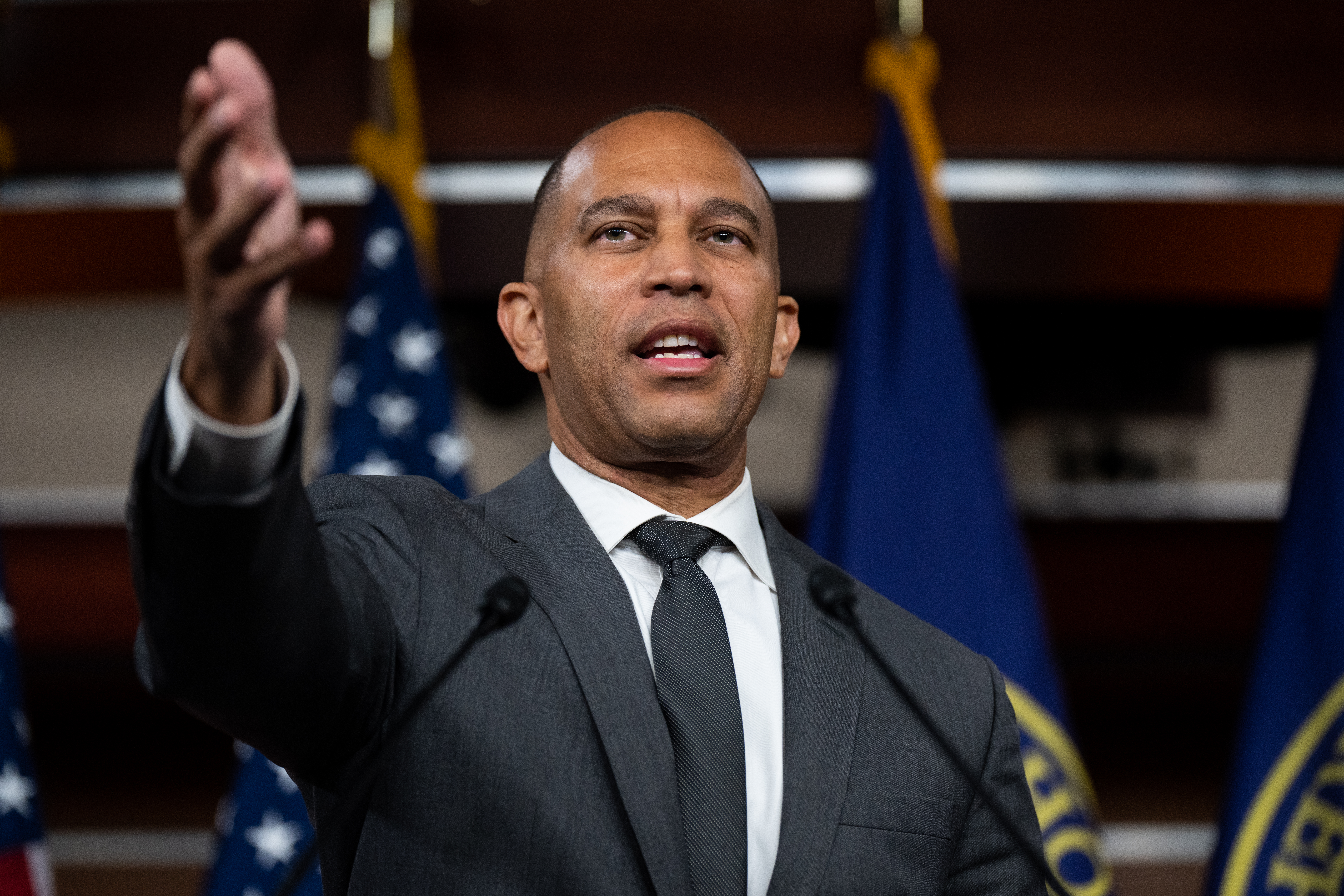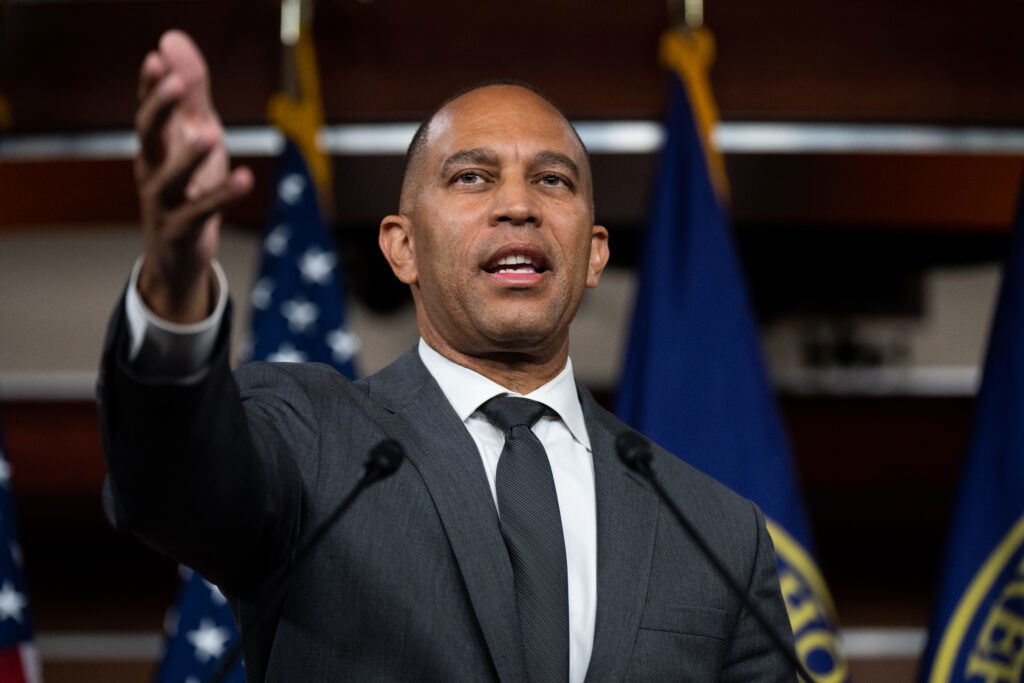
September 20, 2025
Rep. Alexandria Ocasio-Cortez (D-NY), one of the Democrats who voted no, noted who Kirk actually was in opposition to the figure that the Republican Party aimed to lionize.
In the aftermath of the killing of white nationalist Charlie Kirk, the House Republicans, led by House Speaker Mike Johnson (R-LA) put forth a five-page resolution co-sponsored by 165 of his colleagues. The resolution praised Kirk as a “courageous American patriot” who wanted to “elevate truth, foster understanding, and strengthen the Republic.”
According to The Guardian, the House minority leader, Hakeem Jeffries, informed Democrats in a closed-door meeting that leadership would vote in favor of the resolution, but the vote as it regards other members, was left up to individual members. In the vote, 95 Democrats, including Rep. Jeffries, ultimately voted along with the Republicans.
Rep. Alexandria Ocasio-Cortez (D-NY), one of the Democrats who voted no, noted who Kirk actually was in opposition to the figure that the Republican Party aimed to lionize through the resolution in a statement.
“We should be clear about who Charlie Kirk was: a man who believed that the Civil Rights Act that granted Black Americans the right to vote was a ‘mistake,’ who after the violent attack on Paul Pelosi claimed that ‘some amazing patriot out there’ should bail out his assailant, and accused Jews of controlling ‘not just the colleges – it’s the nonprofits, it’s the movies, it’s Hollywood, it’s all of it.’ His rhetoric and beliefs were ignorant and sought to disenfranchise millions of Americans – far from ‘working tirelessly to promote unity’ as asserted by the majority in this resolution,” Rep. Ocasio-Cortez noted.
In addition to the Representative from New York, the Congressional Black Caucus also noted its disagreement with the vote via a Sept. 19 press release. CBC Chair Yvette D. Clarke echoed some of AOC’s concerns in her own statement.
“We strongly disagree with many of the beliefs Charlie Kirk promoted: including his belief that the Civil Rights Act of 1964, which ended racial segregation, was a mistake; his denial that systemic racism exists; his promotion of the Great Replacement theory; and his offensive claims about Justice Ketanji Brown Jackson, Michelle Obama, and Congresswoman Sheila Jackson Lee lacking adequate cognitive ability. The resolution introduced in the House to honor Charlie Kirk’s legacy is not about healing, lowering the temperature of our political discourse, or even ensuring the safety of members of Congress, staff, and Capitol personnel. It is, unfortunately, an attempt to legitimize Kirk’s worldview — a worldview that includes ideas many Americans find racist, harmful, and fundamentally un-American,” Clarke said.
She concluded, “In the wake of this tragedy, President Trump has senselessly threatened to go after the political left. The American people are tired of this kind of cynical politics. It’s disheartening to see a tragedy used to further divide the country and suppress honest debate. As the conscience of the Congress, the CBC has a responsibility to speak out against this on behalf of our communities, and we are calling on each of our colleagues who share our values to follow suit. Enough is enough.”
Like the Congressional Democrats, Mississippi Rep. Bennie Thompson released his own statement noting that although he disagrees with the violent murder of Kirk, he could not, in good conscience, support the resolution.
“I condemn – unequivocally and in the strongest terms – the violent murder of Charlie Kirk. I am praying for his family and for our Nation as we navigate the aftermath of last week’s horrific shooting. No one should be killed for what they say or what they believe, and any claim to the contrary betrays the values upon which this Nation was founded,” Rep. Thompson said.
He continued, “The fact is Charlie Kirk’s rhetoric was divisive, disparaging, and too often rooted in grievance. The beliefs he evangelized normalized fringe views on race, sex, and immigration. Unfortunately, his rhetoric resurrected dangerous prejudices of a dark past. I have spent my entire career – from the peak of the civil rights movement until today – advocating for equal rights for everyone, regardless of race, sex, or religion. I cannot in good conscience honor someone who demeaned women, immigrants, and Black Americans, and who even questioned the very foundation of civil rights progress in this country. This resolution is intentionally written to be divisive, and I must oppose it.”
RELATED CONTENT: Bernice King On Charlie Kirk Comparisons To Her Father: ‘I Get Tired, Y’All’


